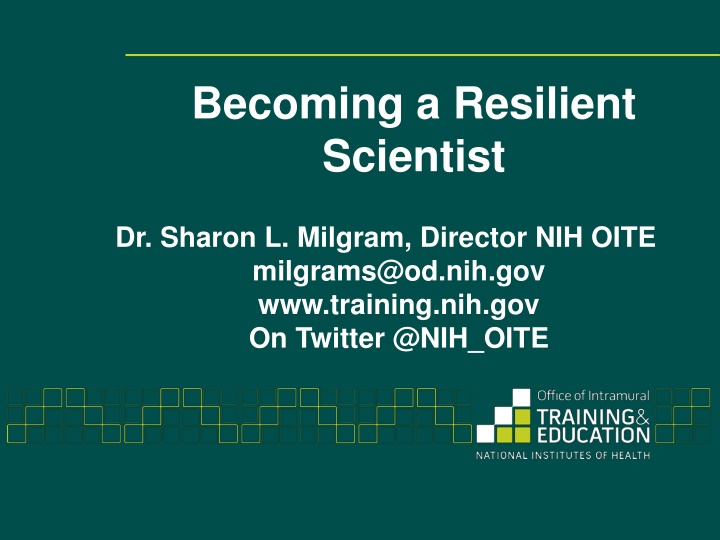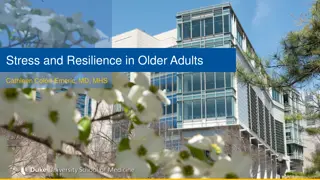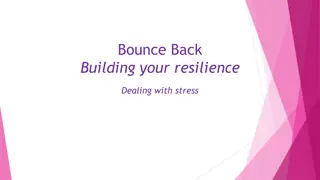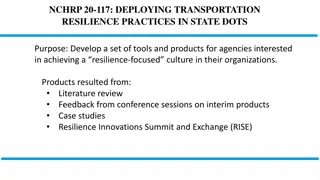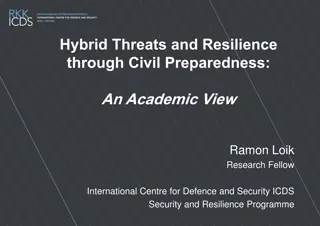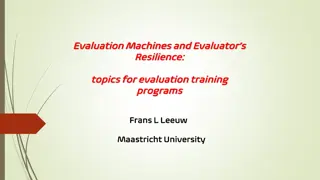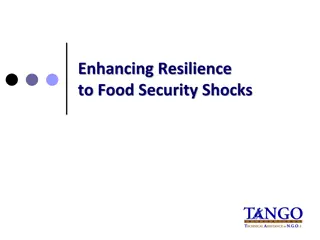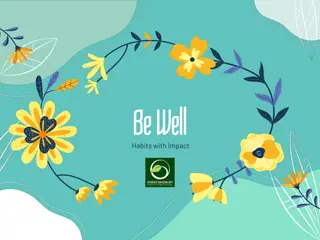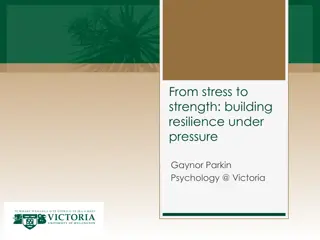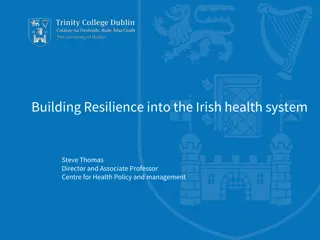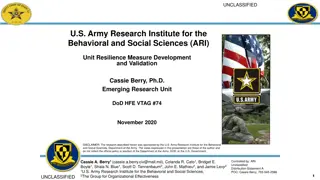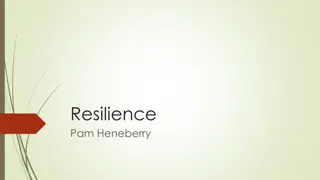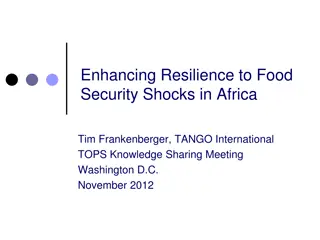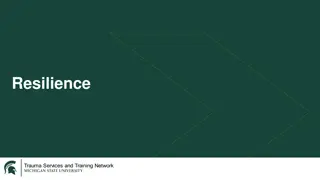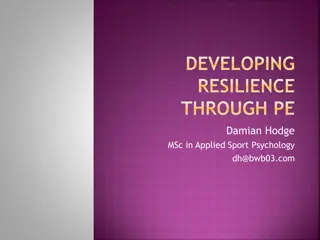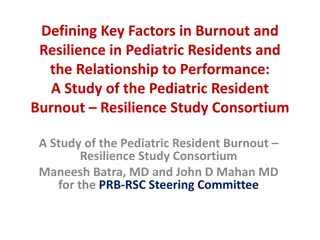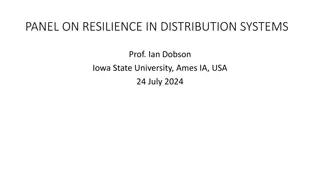Strategies for Building Resilience in Science and Beyond
Resilience is crucial in navigating challenges and setbacks. Dr. Sharon L. Milgram provides insights on developing resilience, learning from experiences, building positive relationships, and managing negative self-talk. Strategies like the ABCs (Activating event, Beliefs, Consequences) and HATS (Hear, Appreciate, Talk, Seek) are shared for self-care and growth. Remember, to excel, one must prioritize well-being.
Download Presentation

Please find below an Image/Link to download the presentation.
The content on the website is provided AS IS for your information and personal use only. It may not be sold, licensed, or shared on other websites without obtaining consent from the author.If you encounter any issues during the download, it is possible that the publisher has removed the file from their server.
You are allowed to download the files provided on this website for personal or commercial use, subject to the condition that they are used lawfully. All files are the property of their respective owners.
The content on the website is provided AS IS for your information and personal use only. It may not be sold, licensed, or shared on other websites without obtaining consent from the author.
E N D
Presentation Transcript
Becoming a Resilient Scientist Dr. Sharon L. Milgram, Director NIH OITE milgrams@od.nih.gov www.training.nih.gov On Twitter @NIH_OITE
The Stages of Learning Enthusiastic beginner Disillusioned learner Cautious performer High Achiever Competence Low/None Some Moderate High Confidence High Low Variable High What happens here? Adapted from Ken Blanchard, Self Leadership and the One Minute Manager
Resilience The ability to: adapt and grow through adversity navigate difficult challenges with awareness, intention, and skill find a constructive way forward during challenging time A set of attitudes and behaviors that can be learned and developed through education, self-reflection, and practice http://www.apa.org/helpcenter/road-resilience.aspx
Take-Aways Resilience = People + Process Those who are resilient prepare to be resilient http://www.psychologytoday.com/blog/design-your-path/201305/10-traits- emotionally-resilient-people
To Be Resilient We Have To Learn from previous experiences, both good and bad Build strong positive relationships with peers and mentors Be proactive and use resources to thrive Be thoughtful about how we approach setback and engage with our negative self-talk (our inner critic) Mayo Clinic http://www.mayoclinic.org/tests-procedures/resilience-training/ in-depth/resilience/art-20046311?pg=2)
The ABCs Activating event Beliefs Consequences The stories we tell ourselves http://www.mindtools.com/pages/article/abc.htm
An Acronym To Help - HATS Hear your negative self-talk/inner critic Appreciate you have a choice Talk back kind language Seek help and access resources
Most Important Take Home Message To do well, we have to be well
Holistic Self-Care Body Mind What we do.. And What we don t do Heart Spirit
To Be Resilient We Have To Learn from previous experiences, both good and bad Build strong positive relationships with peers and mentors Be proactive and use resources to thrive Develop our growth mindset Be thoughtful about how we approach setback and engage with our negative self-talk Practice holistic self-care Do things that bring meaning to our day, week, month . Q for U what brings meaning to your day, week, month? Mayo Clinic http://www.mayoclinic.org/tests-procedures/resilience-training/ in-depth/resilience/art-20046311?pg=2)
Learn more and watch an archived workshop on resilience for students at https://blog.ashg.org/2019/04/30/resilience-webinar/ Visit www.training.nih.gov for information on NIH training programs
